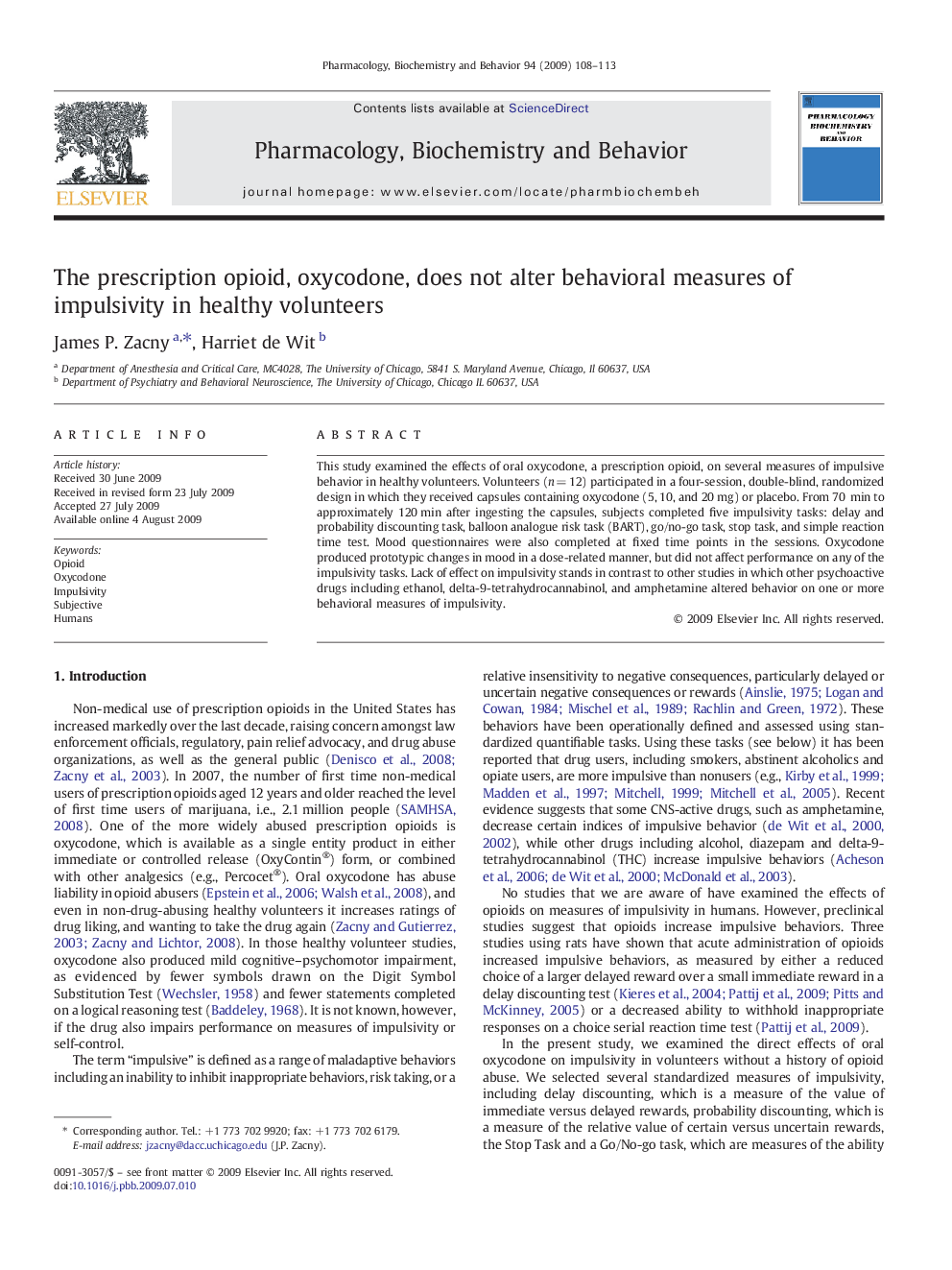| Article ID | Journal | Published Year | Pages | File Type |
|---|---|---|---|---|
| 2013599 | Pharmacology Biochemistry and Behavior | 2009 | 6 Pages |
This study examined the effects of oral oxycodone, a prescription opioid, on several measures of impulsive behavior in healthy volunteers. Volunteers (n = 12) participated in a four-session, double-blind, randomized design in which they received capsules containing oxycodone (5, 10, and 20 mg) or placebo. From 70 min to approximately 120 min after ingesting the capsules, subjects completed five impulsivity tasks: delay and probability discounting task, balloon analogue risk task (BART), go/no-go task, stop task, and simple reaction time test. Mood questionnaires were also completed at fixed time points in the sessions. Oxycodone produced prototypic changes in mood in a dose-related manner, but did not affect performance on any of the impulsivity tasks. Lack of effect on impulsivity stands in contrast to other studies in which other psychoactive drugs including ethanol, delta-9-tetrahydrocannabinol, and amphetamine altered behavior on one or more behavioral measures of impulsivity.
